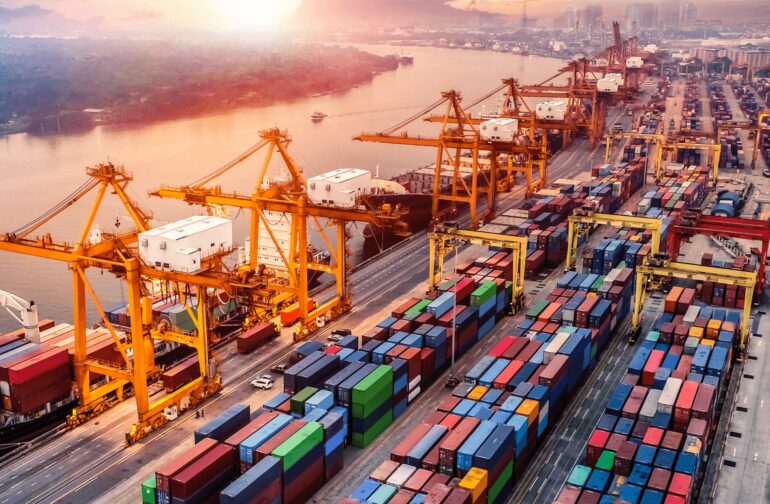As you might know, logistics insurance aids in safeguarding businesses engaged in the distribution, storage, and transportation of goods. This kind of insurance can help with monetary loss protection in case the goods are damaged or lost in transit or in storage.
Now, the insurance that covers any damages to the product that can happen while in transit is known as freight insurance, while the insurance that covers any damages to the product that can happen while in storage is called cargo insurance: https://globalinklogistics.com/services/cargo-insurance/.
What Are the Risks in Cargo Storage?

While many think (especially with marine and on-ground shipments) that transit poses more risks to the goods’ condition than storage does, it’s not entirely true.
Before a cargo is shipped, it gets to be stored for a while. Although it’s not very common, some threatening things can happen to the shipment:
- fire damage
- water damage
- any man-made malevolent events (theft, arson, breach of packaging, physical damage).
All of these can be covered with good cargo insurance that will protect your products while they wait to be shipped off.
How Insurance Can Help?
Your investment is safeguarded by cargo insurance, which also covers any loss, damage, or delays in the shipment of your products. And on the contrary, all goods are handled, stored, and transported at the risk of the shipper, owner, and consignee in the absence of cargo insurance.
If a logistics insurance company or your carrier provides all-risk insurance for the cargo, it means that it is now their liability to perform risk assessment, protect your products, and cover any damage that results in financial loss for your business.
Who Can Issue Cargo Insurance?

When deciding who can protect your shipment, there are several aspects to take into account. The worth of your items comes first. Make sure they are covered entirely in damage or loss or if your things are highly valuable (fine art, exclusive products, etc.).
Next, you have a few options.
You can get cargo insurance directly from the carrier if they offer these services. This way, the whole shipment process will be under their liability and supervision. Some carriers don’t offer insurance ‒ in this case, you will have to look for them yourself.
For B2B logistics, the recipient can offer cargo insurance, but this is a less common case. In most cases, the preferable option is to seek a trusted carrier with an “all-risk” insurance service.
The Conclusion of the Insurance Contract
The insurance contract is created based on the assured’s written declaration, which must include the precise description, kind of package, quantity, and weight of the shipment as well as the numbers and expiration dates of the transit papers.
The kind of vehicle, locations of departure, transshipment, and destination of the goods must also be specified in the contract. Additionally, it must include the insurance amount, insurance terms, and any unique situations not covered by the contract’s provisions.

